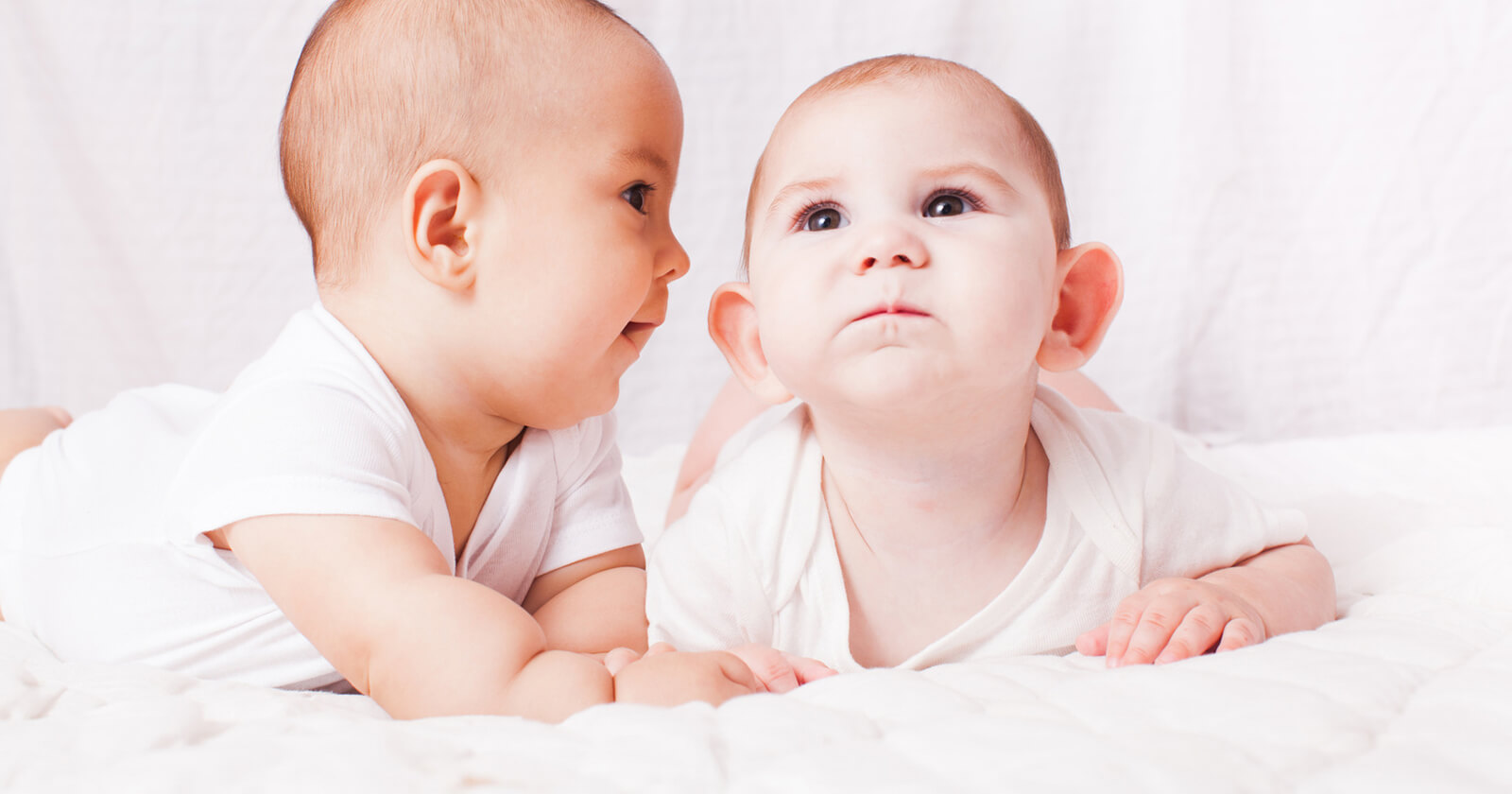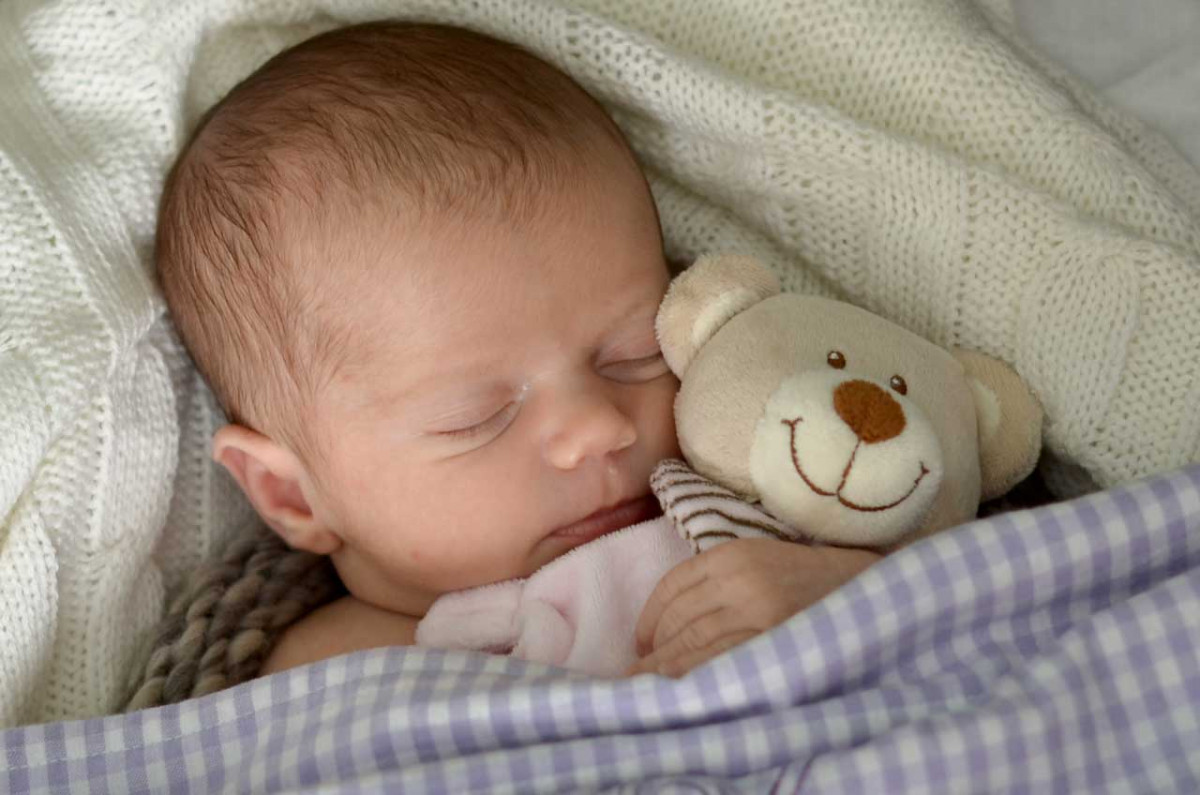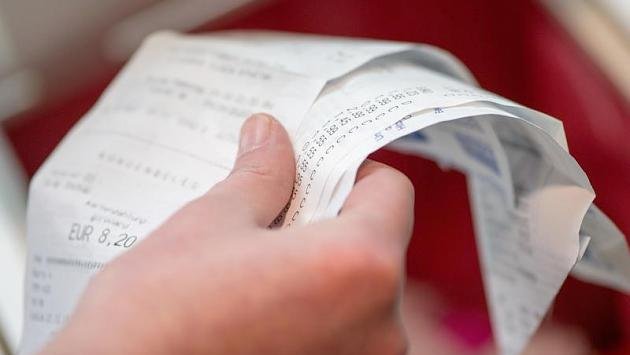Spotted an Error?

The cognitive skills of infants have long been underestimated. Today we know that babies learn from the womb. And even before toddlers speak for themselves, they already know a lot about language.
In the BabyLab at the University of Hanover, diaper children are allowed to watch TV – but only for five and a half minutes and strictly in the service of science: The team headed by Prof. Ulrike Lüdtke from the Chair of Language Education and Speech Therapy wants to find out in a study whether toddlers memorize words and a week later that can assign corresponding movement. For this purpose, the language researchers evaluate the eye movements of the small test subjects. After the first results, the babies can remember the words mentioned.
The goal is to improve speech disorders
Technical developments enabled new methods such as eye tracking, in which babies’ eye movements are recorded. With the help of imaging methods such as computer tomography, the active brain regions can be made visible.
In one of the first German BabyLabs at the University of Potsdam, amazing insights have already been gained. “Long before they speak, babies know a lot about their special language. It used to be beyond the imagination, ”says Professor Barbara Höhle from the Brandenburg BabyLab. “For example, German and French children react at the age of six months completely different on stress patterns. "
How do children learn language? What role do emotions play? These are key questions in Hanover. "For us, basic research is a means to an end," says Prof. Lüdtke. The researchers’ long-term goal is to better recognize and treat language disorders. "According to studies, around 20 to 50 percent of children in daycare centers show abnormalities in language development," says doctoral student Franziska Leischner. And these are not just girls and boys with a migration background.
A child expects a direct answer immediately after birth
Emotions and interaction with the caregiver – usually the mother – play a central role in learning to speak. Empirical studies have shown that language problems often arise under extreme emotional conditions. “Immediately after birth, a child expects a positive communicative partner who will answer it directly. In women with postnatal (post-birth) depression or borderline disorder, this positive communication expectation is disappointed or the wrong or negative emotional response occurs, ”reports Lüdtke.
The Lower Saxony language educators explore this interaction in a field study. Mothers get cameras and film themselves and their child over a longer period of time at home while changing diapers. The researchers want to find out whether social problems affect learning to speak.
The course is set during pregnancy
The Hanoverians work closely with BabyLabs in Copenhagen, Edinburgh, Paris and Chicago. Furthermore With the support of the Federal Ministry of Research and the State of Lower Saxony, a BabyLab is being set up in Africa. A project group is concerned with the language development of AIDS orphans in a children’s home in Tanzania. In addition to research, this is about development cooperation: The nurses in the orphanage are given instructions on how to deal with the often severely traumatized babies best communicate and promote them in their entire development.
Ulrike Lüdtke is convinced that the right course for language development must be set in pregnancy and in baby age. "Most parents know this intuitively and communicate with their children in a playful and fun way from day one," she says.
However, the scientific knowledge about the very early language acquisition would have to be put into practice at all levels. "You could improve parent training, better educate childcare workers and financially improve the often precarious living conditions of very young or single mothers."
RELATED ITEMS
-

How babies learn to speak – language development in children
In the beginning was the Word? Well, actually there was more of a juicy scream. A baby’s speech development begins the moment it is born…
-

Sleep disorders in babies – treat toddlers with Schüßler salts
Reading time: 4 minutes Parents react relatively helplessly if their child does not want to fall asleep in the evening. It is even worse for parents when their babies…
-

Vaccination, child benefit, maintenance: what parents and families can expect in 2020 – focus online
Spotted an Error? The year 2020 has a number of changes and new laws in store for parents and families…
-

Learn to speak: how babies prepare – baby and family
The toddler sees a car and speaks his first word: car. But what happened before? Experts explain how foundation stones for…
